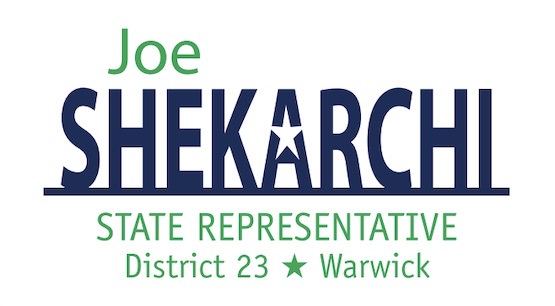New Law Sponsored by Shekarchi Streamlines Regulations for Blockchain Financial Applications
A new law sponsored by House Majority Leader K. Joseph Shekarchi will clarify and streamline Rhode Island’s financial regulatory structure for users of blockchain technology. The bill, which was signed by the governor July 15 after passage by the General Assembly in June, takes effect Jan. 1.
The legislation (2019-H 5847A) consolidates two licenses that are currently required for tech companies that assist consumers with financial blockchain transactions, and will better position Rhode Island’s businesses to use this emergent technology.
“Our message in Rhode Island for the last several years is that we welcome business development and growth. This bill is one element of the effort to make Rhode Island a place where businesses can thrive. By readying our regulatory systems for the technology of the future, we’re encouraging tech companies that may be developing blockchain technology to consider Rhode Island, while also making it easier for other companies, new and existing, to use it. This bill is about making it easier to do business in Rhode Island,” said Leader Shekarchi (D-Dist. 23, Warwick).
Blockchain is a database technology that can be used to store information in a secure and public or encrypted manner, creating a decentralized database of blocks of data that are shared by all users. Each block is attached to a chain of the blocks that came before it, creating an easily traceable and hard-to-alter history of the data. Although the design’s most high-profile use is to track the virtual currency Bitcoin, it has many applications, some financial, some not. Walmart has begun using it to track the supply chain of its produce, and Rhode Island-based CVS and Fidelity have been using it to ensure patient information security and to facilitate the financial transactions of the future.
The new law concerns only the functions of blockchain that that involve currency or virtual currency, since those are already licensed activities in Rhode Island.
The law consolidates Rhode Island’s current electronic money transmitter license and its sales of checks license, and adds the authority for virtual currency to the new currency transmission license. The new license will allow licensees to conduct all the activities allowed under the two prior licenses, plus virtual currency activities. Currently, users of blockchain financial applications are required to have both licenses.
Much of the bill is based on model law used in other states, reducing the regulatory burden for companies that operate in several states.
The legislation was supported by the Department of Business Regulation (DBR).
“DBR is proud to support this key piece of legislation,” said DBR Director Liz Tanner. “The bill addresses needed clarifications that will enable the blockchain community to grow in Rhode Island.”
